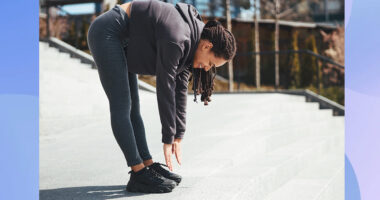
1. Practice personal hygiene
As germs spread rapidly during the monsoons, the first thing you must do is take care of yourself by maintaining proper personal hygiene. This includes washing your hands with soap and water before you eat, prepare or serve food and as soon as you return back home from outside.
The Centers for Disease Control and Prevention (CDC) recommends washing hands with soap and water for 20 seconds is the best way to get rid of germs.
Washing hands with non-antibacterial soap and water is considered effective in eliminating bacteria from hands as compared to washing hands with only water, which is considered helpful in preventing the transmission of diarrheal diseases during monsoon [2].
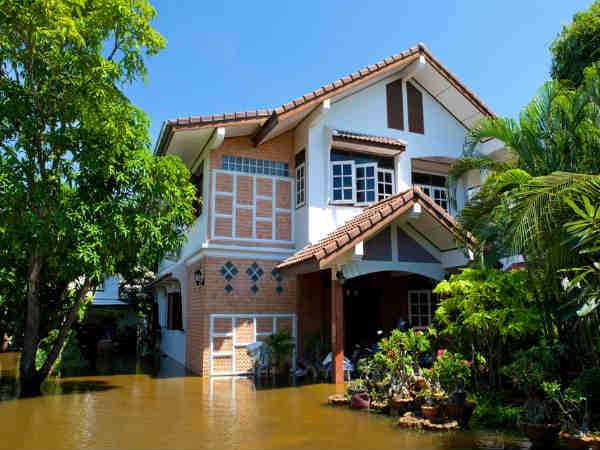
2. Clean your surroundings
During the monsoons, the accumulation of stagnant water in your surroundings can become the breeding ground of mosquitoes, and this, in turn, will increase the risk of malaria [3]. Make sure that there is no open water storage in your home or near your house and ensure that there is no water clogged in open pots.

3. Eat vitamin-c rich foods
It is essential to strengthen your immune system during the monsoons. Consume foods rich in vitamin C such as citrus fruits, green peppers, strawberries, tomatoes, red peppers, Indian gooseberry, broccoli and other green leafy veggies as they will prevent you from falling ill more often [4].
 Vitamin C: Health Benefits, Dosage And Side Effects
Vitamin C: Health Benefits, Dosage And Side Effects

4. Avoid street food
Avoid gorging on street food, open cut fruits and other kinds of food items sold on the street. These food items are kept in the open air and the way they are prepared is unhygienic.
Food-borne bacteria pathogens such as Bacillus cereus, Clostridium perfringens, Staphylococcus aureus and Salmonella spp. have been found in street foods. People who frequently eat street foods suffer from food-borne diseases such as food poisoning, diarrhoea, cholera and typhoid fever [5].

5. Drink boiled water
During the monsoons, drink only boiled water as it destroys the pathogens in the water. Drink boiled water within 24 hours of boiling and avoid drinking water from outside. This will help prevent water-borne diseases [6].
 10 Health Benefits Of Drinking Warm Water
10 Health Benefits Of Drinking Warm Water
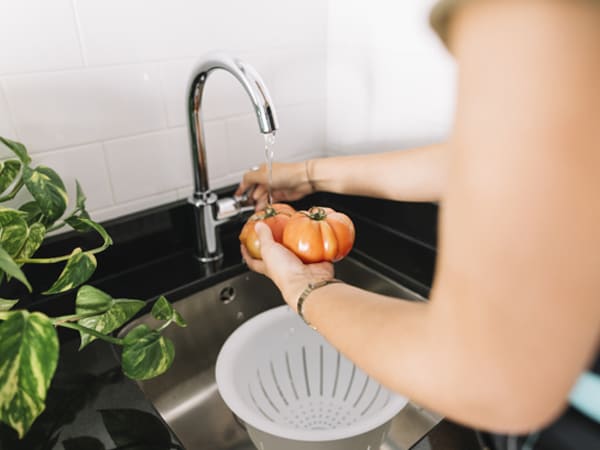
6. Wash vegetables properly
Wash fruits and vegetables, especially leafy vegetables, thoroughly under clean running water as they are a host to many worms, larvae and dust. Before cooking them wash and boil them, in this way, you can prevent yourself from food-borne illnesses [7].
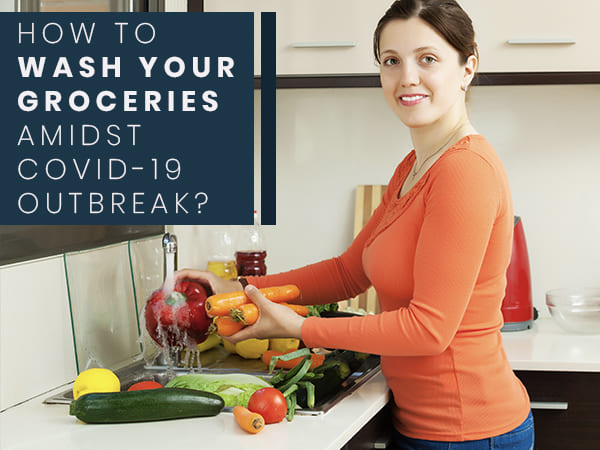 Coronavirus: Tips On How To Clean Your Groceries
Coronavirus: Tips On How To Clean Your Groceries

7. Wear clean, dry clothes and footwear
Don’t wear clothes and shoes until and unless they are dried properly because molds tend to form in damp clothes and shoes. Since there’s less sunlight during the monsoons, it is important to dry them completely before wearing.

8. Exercise daily
Exercise every day to stay fit and healthy. If you are unable to go outdoors due to rain, practice simple indoor exercises like squats, push-ups, burpees, lunges, planks, etc. Exercising will not only boost immunity but also will improve blood circulation, improve mental health and help in weight management.

9. Add disinfectant to bathwater
If you have got drenched in the rain, take a bath in hot water by adding a disinfectant to your bathwater. This will help get rid of the germs that you may have picked up after getting wet.
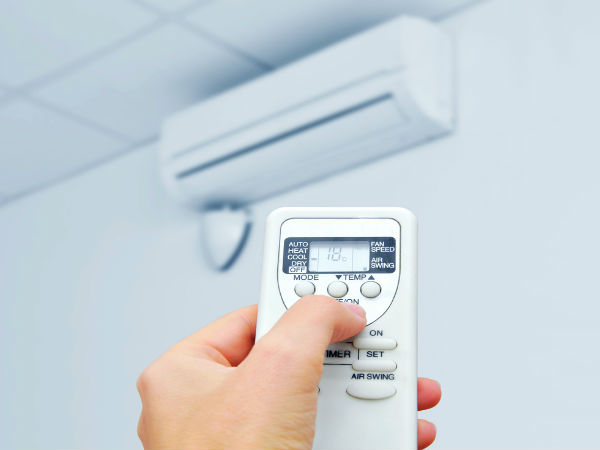
10. Don’t enter an AC room
If you have got wet in the rain, don’t enter an air-conditioned room. Dry yourself completely before you enter the AC room to prevent yourself from getting cold, cough and fever.

11. Get plenty of sleep
Lack of sleep can weaken your immunity and cause fatigue and this can increase the risk of contracting various illnesses. Get adequate sleep at night so that you wake up feeling fresh and active. Try to get seven to eight hours of sleep daily.
READ RELATED: L.A. Doctor’s 4-Ingredient Hangover Cure Is Going Viral: “It Really Works”

12. Don’t touch your face with dirty hands
Your hands carry thousands of germs throughout the day. Touching your face with dirty hands will allow the germs to enter the body through the eyes, nose and mouth. Ensure that you wash your hands with soap and water before you touch your face.

13. Apply mosquito-repellents
Since, during monsoon mosquitoes are on the rise, you can prevent yourself from mosquito bites by applying mosquito repellent on the parts of the body that are exposed. This will help keep mosquitoes at bay.
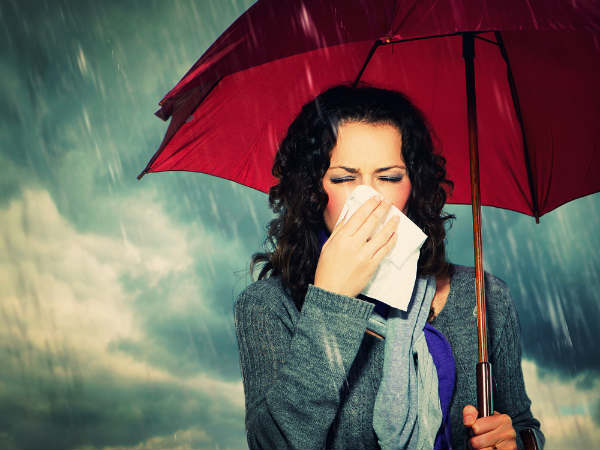
Other Preventive Tips To Follow During The Monsoon
• Don’t allow children to play in puddles.
• Drink warm soup, herbal tea like ginger tea, lemon tea, etc.
• Keep your feet clean and dry to prevent fungal infections.
• Carry an umbrella and raincoat to avoid getting wet in the rain.
• Consume yogurt to improve gut health.
• Eat home-cooked food
• Drink plenty of water.
• Wear light, coloured clothing.
Common FAQs
Q. Which food is good in rainy season?
A. Fruits and vegetables such as pear, apple, banana, papaya, broccoli, green and red peppers and tomatoes, to name a few.
Q. What should we avoid during rainy season?
A. Oily and fried food, soft drinks and salty food should be avoided.
Q. How do we improve our digestion in rainy season?
A. Drink plenty of water to boost your digestive system as it helps flush out the toxins from the body.
Source: boldsky blog



 10 Common Hand Washing Mistakes You Are Probably Making
10 Common Hand Washing Mistakes You Are Probably Making

